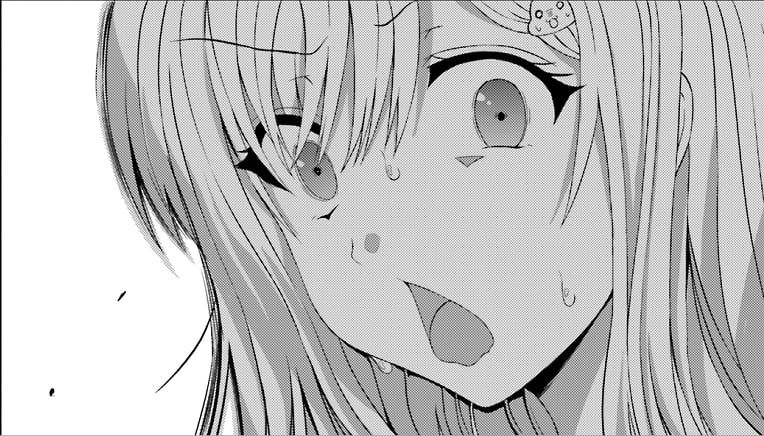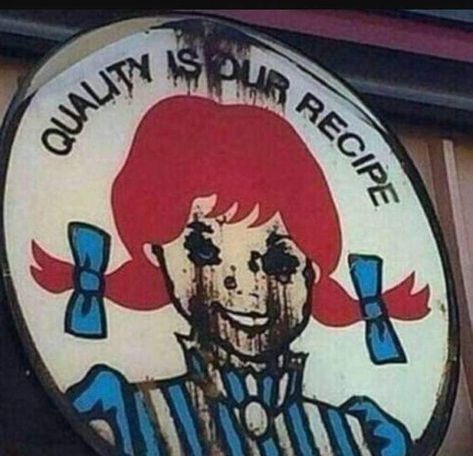I’ve become aware, as I get older, how my initial emotional reaction to conflict isn’t always fair and is usually pointed backward, defensive and angry. I also know that I do better if I have time alone to process how I’m feeling, and often by the time I’m done things have moved on.
What I’ve been working on is to stop using excuses - the moment has passed, I’d just be dredging up the same argument, I’ve had this conversation in my head a bunch but they never turn out exactly right - and just go back to the people involved and tell them how I feel because they deserve that effort. There have been disagreements I’ve had where I wasn’t in the wrong but the other party did something I can admire and appreciate, and it doesn’t hurt me any to say that.
And it never ends with what I imagine is “argument perfection”: a point by point discussion of intent and action and history. Which is silly because life is messy but it gets better and I and others grow more patient and willing to move forward if I’m not always bracing for a blow.
That’s…probably a bit confusing, but it’s been something I’ve been mulling over, so…what personality traits of yours are you working on?
I’m a good listener, but I’m not a good question asker. I want to try to ask more questions during conversation, so people know I’m interested in what they have to say.
deleted by creator
@wesker @Lemmylefty I find this happening in phone call convos w friends at times. They’ll tell me things that are going on in their lives that may not be ‘ooh interesting’ but that I enjoy hearing about/reflecting upon with them. But I don’t always have feedback or insights or questions to ask etc, so as I’m thinking of something to say, the Convo veers off to some other topic, maybe with the impression given that I’m not interested, which is definitely not the intention
I’m trying to cultivate a stronger sense of kinship/kindness towards complete strangers. My natural impulse is to take on an adversarial/defensive/judgemental stance towards people which is unhealthy. For example if someone cuts me off in traffic I just assume they’re a terrible person - but I have to remind myself that having this reaction only makes my own life more unpleasant. Things work out better if you assume the best in people.
One time I was speeding up the freeway at 5am doing about 20 over the limit. At the time it was a two lane freeway and there were two cars side by side. I flashed my lights at the car in front and they wouldn’t move so I eventually looked ahead and over took them on the shoulder. Probably were thinking what a nutcase but I had my wife in labour in the passenger seat HAHAHA. Sometimes, you just don’t know the reasons for a person’s behaviour and we can often judge their entire person from an interaction in a minute moment in time.
Oh by the way, she was crowning by the time we got the the hospital, he didn’t wait lol
I like that approach where you just assume that the person who cut you off REALLY has to poop and is rushing to get to the bathroom 😄
Trying to become a more “active” listener. My brain tends to want to immediately come up with a response without fully waiting to hear the whole conversation. Hence often, I speak before I think and/or before the person I was listening to was finished talking. I am trying to quiet my brain until the speaker finishes their commentary before I pause and work on a thoughtful reply as opposed to blurting out the first thing that comes to my mind.
@Zathras @Lemmylefty I do this too! I find myself interrupting people to finish their sentences at times, or assume I know what they’re going to say and think/spit out a response to move the Convo along. After doing some internet research, I’m starting to wonder if it may be a symptom of undiagnosed ADHD or something 🤷 might be worth taking a look into and asking a professional
It’s amazing how hard this is. Once I started working on it I realized how much of the time I am just running a search of something in my experience that is somehow related, instead of actually listening and thinking of follow up questions. Once you start getting better at it you start realizing how often others have the same challenge.
Super valuable skill and habit to learn. Good luck to us both.
Oh this is very familiar.
I think this is an aspect of AD(H)D; you know you have something to say, but you’re not sure you can hold onto it AND what the other person is saying at the same time.
In my case, a lot of the time I just don’t process conversation at the same speed that other people do. I like text for a reason: I can marshal my thoughts, edit comments, and see what I’m responding to instead of relying on my memory which is…poor.
At the same time, there’s the notion that different communicative means produces different communication styles. A phone call is not a face to face talk is not an email is not a letter is not a DM, so each should differ according to the medium. Deep, insightful comments might lend more towards written conversations, partly because they’re hard to say in the moment and because they’re hard to react to.
deleted by creator
Because your kids won’t need a parent once they turn 18?
Because I can finally put myself first.
Don’t worry if you were in my life, I’d put you first ;)
If you want to talk drop me a message.
I love you.
Recovery takes one step at a time
Talk less, listen more. Not by choise, mind you. Ever since the pandemic my social interactions have steadily declined. At this point I sometimes spend days without verbally saying anything
Paranoid anxiety. I spend far, far, too much time thinking about how others dislike or distrust me, when there’s no evidence at all that this is the case.
I feel ya buddy. Not so much worried about social stuff, but just feel like the world can come crashing down every time I make a mistake.
That’s so awesome that you recognized it and decided to be better! I’ve been doing a similar thing. I’m trying not to get defensive when a mistake is pointed out to me. I’m trying harder to own my role in the problem and not be like “well, if so and so hadn’t…”
Good luck to us both!
I’m acerbic. Sometimes I’m outright a jerk. I’m pretty good about taking criticism and I like taking that criticism because then I can improve, but then I apply the same to other people who may not want to be criticized in that manner. I’m trying to be more mindful about how certain people communicate and like to be communicated back to, but it’s a slow journey.
I’m often quite dominant in discussions and tend to strongly defend my position when I consider the other options to be wrong. However, my second issue is that I struggle to accept new ideas sometimes. This combination can leave me in a place where I heavily fight against a new idea, purely because I’m not fully convinced why it’ll improve things. As I learn more about it, sometimes I’ll see why it’s actually a good idea and I’ll cringe about my staunch resistance to it. I’m getting better at suppressing that initial reaction, but sometimes it’s hard since I really feel like we’re doing the wrong thing. I also think it’s related to being autistic, as black an white thinking, resistance to change, and valuing facts over the feelings of others are all things that often come with autism. Nevertheless I really want to tone it down a bit.
I tend to do the same thing. I find it’s very helpful to find other people who enjoy debate, but to keep in mind that we’re the weird ones. Most people find disagreement to be unpleasant and tend to struggle with separating disagreement with an idea and disagreement with a person. My best friend once described me as a good person and a terrible friend - I make it my goal to live up to that.
Yeah I feel you on this one. It’s like my first reaction is to raise my hackles, not just because “CHANGE???” but also that a new idea means I Fucked Up by not considering all options or foreseeing it.
Which is silly and unfair of me. I make errors all the time, and I can’t possibly foresee everything, and when I offer up ideas it’s because I see a problem and want to fix it so things get better.; I’m not thinking about shoving someone’s nose in their failure to be omniscient so why should I be so concerned they’re doing the same?
One thing that helps is the knowledge that we don’t stop thinking about something when we stop consciously thinking about it, so my slow embrace of an idea after hours or days makes sense; my mind kept it on the stovetop, just on the back burner. It’s not fickleness, it’s consideration, and the knowledge that I do that can help give me the confidence to say, in the moment, “I’ll get back to you on that”.
I… Have a hard time not blaming others for their mistakes. I do the same with myself and it’s easy to externalize that. I just think it’s kind of cruel now that I’m old. Most people who commit an error are already suffering and I shouldn’t make it worse more than I have to.
Trying to be more positive. My cynicism doesn’t affect me but it seems to put others down.
Happiness
Great question. I’m trying to change my narcissistic tendencies that sneak into many aspects of my life and relationships. I struggle seeing things from other people’s perspectives, get extremely defensive if feel challenged and often empathy doesn’t come as natural to me as I would like.
Each year my new years resolution is to talk less and listen more.
That’s an axiom that people always just themselves by their intent and others by their actions.
This leads to excuses for themselves and harshness on others until proven otherwise.
I’ve been trying lately to internalize my understanding of this to fight my natural impulse to fall into this universally human trap. Basically, be a kinder person by judging the actions of others by considering plausible reasons they may have had for doing something that rubs me the wrong way. Also the opposite, and being understanding when someone flips out on me for something I did because they don’t have access to all of my mental state that led me to that point.
deleted by creator
It is definitely tough to shed that sense. Growing up knowing I was “weird” and therefore bad (no, it was just undiagnosed autism, but I was an adult before I knew that and that element of myself had long since been solidified) meant that if I wanted people to like me then I had to give more than they did in order to just break even, which is exhausting and unfair, especially since I have a tendency to read neutral expressions as negative ones.
One thing that has helped me is the realization that that happy feeling I get when someone came to me for help and I helped them? Goes both ways for good people. And it sucks for them, too, if you’re suffering and they could help but you were afraid to ask. Having standards is both a defense of yourself and a means of determining which people should stay prominent in your life.
deleted by creator







